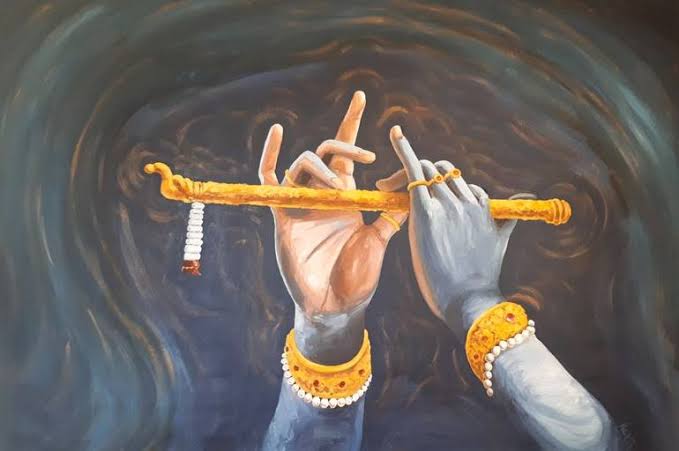Have you ever had the experience of just one single decision changing your life forever? That one moment of inspiration and going ahead with the call and voila, life is changed! Arjuna experienced something profound which changed him and the course of history, both material as well as spiritual for the entire mankind. But before that, let us understand five steps of problem solving, a framework so to speak.
| Sansar Darshanam ( संसार दर्शनम्, truly seeing it) |
| Mokshatva ( मोक्षत्व, true desire to resolve it) |
| Karpanya Bhaav ( कार्पण्य भाव, Understanding the need of external help) |
| Sharnagati ( शरणागति, Approaching and trusting the expert) |
| Kriyanvayan ( क्रियान्वयन, implementation) |
Step 1 : Sansar Darshanam ( संसार दर्शनम्, truly seeing it)
More often than not we miss properly understanding our own problems. No no, it’s not that we are not smart, we can clearly identify problems in others’ lives. Rather we are experts at identifying issues in other people’s lives. It’s just that when it is about our own, we find excuses and misdirect the issues. This mis-diagnosis is really the cause of prolonged troubles in our lives. Raaga (राग, attachments) to people, objects and situations makes us blind to real issues in our own lives. Seeing a problem as a problem is the first step towards solving it.
Step 2 : Mokshatva ( मोक्षत्व, true desire to resolve it)
Victim mindset is almost like a disease which is widespread in the world. Rare personalities like Dr Ambedkar are there who refuse to accept themselves as victims and get on to do something about the situation. In general, we find it easy to blame someone else and accept oneself as the victim. This removes the ownership to resolve the situation. One needs to truly desire a solution to get out of a mess. Most relish remaining in the mess, whether accept it or not, realize it or not, it’s the easy way out. The very design of India’s Bureaucracy is a prime example of creating and then relishing the mess.
Step 3 : Karpanya Bhaav ( कार्पण्य भाव, Understanding the need of external help)
Our Ego is the biggest stumbling block in getting a solution even when the real problem has been identified. Knowing the need of help is the key. Accepting that I cannot do it myself and seeking help as “I need someone to intervene and help me, guide me, coach me.” is the key.
Step 4 : Sharnagati ( शरणागति, Approaching and trusting the expert)
Approaching the expert with full trust and dedication that the advice received is for my good and it will be followed. This is true in any walk of life that an expert needs the respect and ‘surrender’ so that they hear out full details for proper diagnosis and recommend the best course of action. This is true when we go to a Doctor or Lawyer or CA etc and equally applicable for spiritual progress. Lord Krishna later tells Arjuna how to approach a spiritual mentor.
Step 5 : Kriyanvayan ( क्रियान्वयन, implementation)
Don’t we leave medicines halfway in the course as soon as we start feeling better, and pay a heavy price as the disease relapses. Executing with utmost sincerity and proficiency (दक्षता) is the key.
Lamenting Arjuna at the prospect of killing his relatives falls into a vicious cycle to reach a stage of utter self pity. He starts dragging Krishna with himself to reach a conclusion, “We are going to do horrible things by killing them so lets abscond”. Krishna goads him for what he has made of himself and even pushes his ego button by saying it’s unmanly and cowardice for you to think this way.
It is sheer luck of Arjuna that he receives the Grace of Lord in the form of clarity of need of help. He realizes his situation, sees the problem as it is and accepts that he needs help. That cousin and best friend from childhood who is acting as charioteer is needed for him in a new role. Arjuna surrenders and accepts that he needs help from Krishna, his master now. What a lucky guy to make this move! Are we that brave in our moments of weakness?
Krishna, with a beautiful smile, says simple yet most powerful words, “Wise do not worry”.
पण्डिता: न अनुशोचन्ति || 2.11||





